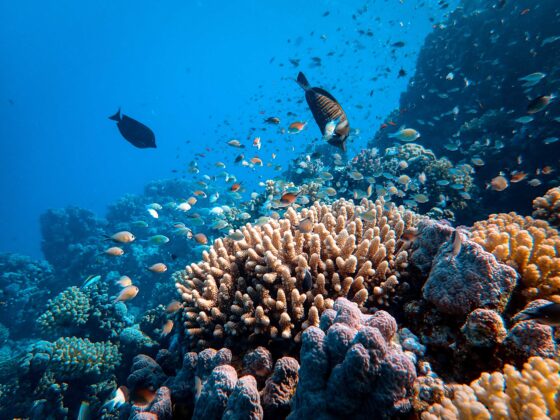
Did you think that corals had no language at all and did not produce any sound? Think again! Scientists even suggest listening to the sound of the reefs to monitor their health: the more sound they emit, the more likely they are to be well preserved. Indeed, corals are among the underwater species most threatened by global warming.
Yes, corals make noise. And according to oceanographers at the Naval Undersea Warfare Center (NUWC), listening to them could be an inexpensive and effective method of monitoring their health.
To arrive at this conclusion, a NUWC team led by US oceanographer Lauren Freeman monitored reef acoustics for Hawaii between 2019 and 2020 and introduced underwater microphones over a six-month period. They then compared them with other sounds collected near Bermuda and in New England.
In general, the hundreds of thousands of animals living in the reef emit sounds akin to stray radio noises, crackling or the vibration of milk being poured into a bowl of cereal, the study explains. Very accurate descriptions, which, however, apply when the coral reef is preserved. “The sound changes for reefs that are not healthy, becoming quieter and less diverse”, note the authors of the study.
Another study published in late May by English researchers at the University of Exeter draws a similar conclusion. The researchers reconstructed sounds using an artificial intelligence tool, detecting differences in sound frequencies depending on the health status of the reefs. The authors of the work found that preserved corals produced louder sounds than corals exposed more to bleaching.
Corals still preserved in certain parts of the planet
Coral reefs are essential for biodiversity and human health and are severely affected by marine heat waves, which are increasingly recurring under the influence of climate change. The rise in water temperature leads to a phenomenon of ocean acidification, which creates a significant thermal load on corals, which ultimately manifests itself in bleaching, ie the dying off of these reefs.
According to an Australian government report released in mid-May, about 91% of Australia’s Great Barrier Reef suffered “bleaching” as a result of a prolonged heat wave during the Australian summer. Fortunately, some of them seem to hold up better in other parts of the world.
This is particularly the case in Tahiti, where fully preserved reefs have recently been discovered by an international team of researchers. This is also the case on the island of Hawaii, according to a recent study by American researchers from Oregon State University.
(ETX Daily Up)